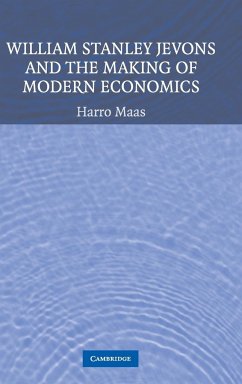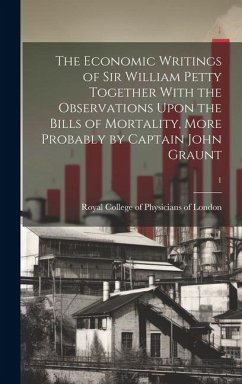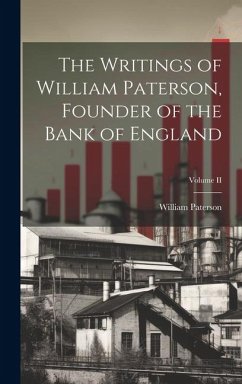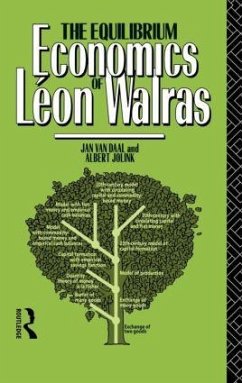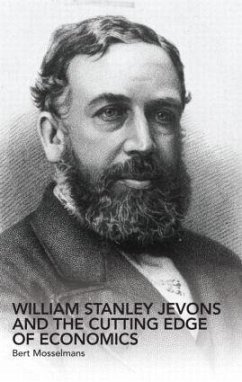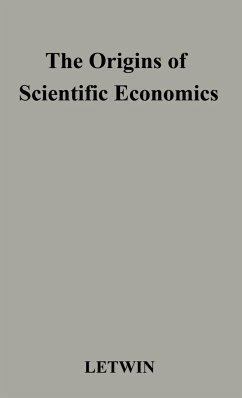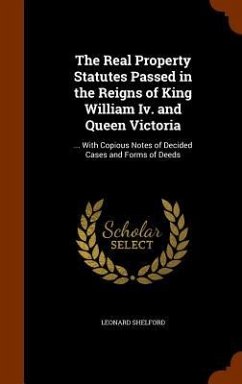
William Jaffe's Essays on Walras
Versandkostenfrei!
Versandfertig in 1-2 Wochen
128,99 €
inkl. MwSt.

PAYBACK Punkte
64 °P sammeln!
In this book Dr Walker brings together Dr William Jaffé's essays on the important and interesting work of Léon Walras, the founder of general equilibrium analysis. The essays were selected on the basis of their importance to the Walrasian literature, in that they provide information on Walras's intellectual biography with which we would otherwise be unfamiliar or they make a contribution to the interpretation and analysis of his ideas. One of Jaffé's main interests was to explain the genesis of Walras's work, which he did by examining Walras's biography. The biographical materials presented...
In this book Dr Walker brings together Dr William Jaffé's essays on the important and interesting work of Léon Walras, the founder of general equilibrium analysis. The essays were selected on the basis of their importance to the Walrasian literature, in that they provide information on Walras's intellectual biography with which we would otherwise be unfamiliar or they make a contribution to the interpretation and analysis of his ideas. One of Jaffé's main interests was to explain the genesis of Walras's work, which he did by examining Walras's biography. The biographical materials presented in the essays deal with the social and economic milieu in which Walras lived and worked, his father's influence on him, and his intellectual history. Using a wide variety of sources, Jaffé pieced together an account of these matters in the belief that biography is essential for understanding the origins and development of a scientist's work. Jaffé also dealt with many special topics in Walras's economics, including his theory of tâtonnement, and his exposition of equilibrium conditions in a system of interrelated markets. Jaffé corrected what he regarded as errors of interpretation of Walras by other writers, evaluated Walras's contributions, and indicated his significance for modern economics. The essays are informative, illuminating, and - as a result of Jaffé's scholarly and literary craftsmanship - aesthetically satisfying.
Table of contents:
Preface; Acknowledgments; Introduction; Part I. Walras's Biography: 1. Unpublished papers and letters of Léon Walras (1935); 2. Léon Walras, an economic advisor manqué (1975); Part II. The Genesis and Development of Walras's Ideas: 3. A. N. Isnard, progenitor of the Walrasian general equilibrium model (1969); 4. The birth of Léon Walras's Eléments (1977); 5. A centenarian on a bicentenarian: Léon Walras's Eléments on Adam Smith's Wealth of Nations (1977); 6. Léon Walras and his relations with American economists (1960); Part III. The Scope of Walras's Work: 7. Léon Walras and his conception of economics (1956); 8. Léon Walras (1968); Part IV. Special Topics in Walras's Economics: 9. Léon Walras' theory of capital accumulation (1942); 10. Walras's theory of capital formation in the framework of his theory of general equilibrium (1953); 11. New light on an old quarrel: Barone's unpublished review of Wicksteed's 'Essay on the coordination of the laws of distribution' and related documents (1964); 12. The Walras-Poincaré correspondence on the cardinal measurability of utility (1977); 13. Walras' theory of tâtonenment: a critique of recent interpretations (1967); 14. Another look at Léon Walras's theory of tâtonnement (1981); Part V. Walras's Place in the History of Economic Thought: 15. Reflections on the importance of Léon Walras (1971); 16. Léon Walras's role in the 'marginal revolution' of the 1870s (1972); 17. Menger, Jevons and Walras de-homogenized (1976); 18. The normative bias of the Walrasian model: Walras versus Gossen (1977); 19. Walras's economics as others see it (1980); Index.
In this book Dr Walker brings together Dr William Jaffé's essays on the important and interesting work of Léon Walras, the founder of general equilibrium analysis. One of Jaffé's main interests was to explain the genesis of Walras's work, which he did by examining Walras's biography.
Essays on the life and work of Léon Walras, the founder of general equilibrium analysis.
Table of contents:
Preface; Acknowledgments; Introduction; Part I. Walras's Biography: 1. Unpublished papers and letters of Léon Walras (1935); 2. Léon Walras, an economic advisor manqué (1975); Part II. The Genesis and Development of Walras's Ideas: 3. A. N. Isnard, progenitor of the Walrasian general equilibrium model (1969); 4. The birth of Léon Walras's Eléments (1977); 5. A centenarian on a bicentenarian: Léon Walras's Eléments on Adam Smith's Wealth of Nations (1977); 6. Léon Walras and his relations with American economists (1960); Part III. The Scope of Walras's Work: 7. Léon Walras and his conception of economics (1956); 8. Léon Walras (1968); Part IV. Special Topics in Walras's Economics: 9. Léon Walras' theory of capital accumulation (1942); 10. Walras's theory of capital formation in the framework of his theory of general equilibrium (1953); 11. New light on an old quarrel: Barone's unpublished review of Wicksteed's 'Essay on the coordination of the laws of distribution' and related documents (1964); 12. The Walras-Poincaré correspondence on the cardinal measurability of utility (1977); 13. Walras' theory of tâtonenment: a critique of recent interpretations (1967); 14. Another look at Léon Walras's theory of tâtonnement (1981); Part V. Walras's Place in the History of Economic Thought: 15. Reflections on the importance of Léon Walras (1971); 16. Léon Walras's role in the 'marginal revolution' of the 1870s (1972); 17. Menger, Jevons and Walras de-homogenized (1976); 18. The normative bias of the Walrasian model: Walras versus Gossen (1977); 19. Walras's economics as others see it (1980); Index.
In this book Dr Walker brings together Dr William Jaffé's essays on the important and interesting work of Léon Walras, the founder of general equilibrium analysis. One of Jaffé's main interests was to explain the genesis of Walras's work, which he did by examining Walras's biography.
Essays on the life and work of Léon Walras, the founder of general equilibrium analysis.



